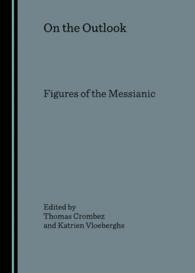Full Description
This groundbreaking book introduces the Model for Equitable Literacy Learning Environments (MELLE), a comprehensive framework that integrates evidence-based instruction with culturally responsive pedagogy to create truly equitable learning environments for all children.
Despite decades of reading instruction reform, persistent achievement disparities remain between students from marginalised communities and their more privileged peers. Drawing on extensive international research across Australia, the United Kingdom, and the United States, the author examines how three key dimensions—quality instruction, opportunity to read, and authentic representation in reading materials—must work together within supportive cultural and community contexts. Interwoven with real-classroom examples, the text showcases how this framework can be applied to address persistent achievement gaps and promote inclusive education.
Moving beyond polarised literacy debates, this book is a must-read for educators seeking practical solutions to create equitable learning environments that empower learners from a range of backgrounds.
Contents
Foreword
Preface and Acknowledgments
1. Introduction: The Reading Equity Dilemma
2. Theoretical Framework for Equitable Literacy Learning Environments
3. Quality Instruction: Rethinking 'Best Practice'
4. Opportunity Inequities in Access to Reading
5. Representation in Reading Materials
6. Disrupting Prejudice Through Children's Literature
7. The Model for Equitable Literacy Learning Environments
8. Culturally Responsive Literacy in Action: An Exemplar of Practice
Mikayla King and Helen Adam
9. Policy and Practice
10. Conclusion: Towards a New Paradigm in Reading Education
Appendix: Research Methodology
Index







